Various artefacts found within old waste dump

Excavations of a waterlogged waste dump in the centre of Newcastle, United Kingdom, uncovered numerous Medieval artefacts, including pottery and bones.

Excavations of a waterlogged waste dump in the centre of Newcastle, United Kingdom, uncovered numerous Medieval artefacts, including pottery and bones.
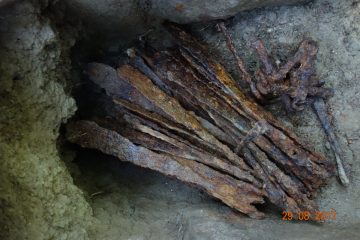
Archaeologist discovered an unbroken pottery vessel filled with a treasure of iron objects, hidden within an oven dating back to 10th century, in Bojná near Topoľčany, Slovakia.

Police officers have seized around 800 illegally obtained artefacts during a raid at a private flat in Wągrowiec, North-West Poland.
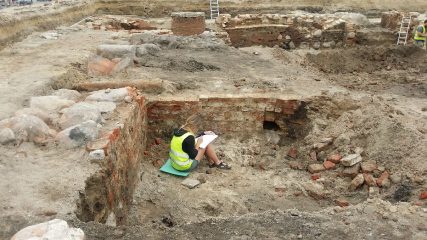
During excavations of the remains of the town hall in Słupsk, North Poland, archaeologists unearthed the basements and foundations of a building not known from any historic plans.

A joint team of Chinese, American and Kenyan archaeologists unearthed three human skeletons at an archaeological site of Manda Island in Lamu county, Kenya. The individuals are believed to have been Medieval Chinese travellers.

Archaeologists working at a revitalisation project in Głogów, South-west Poland, uncovered remains of a church and monastery of St Stanisław that belonged to the Franciscans who settled in the city in mid 13th century.
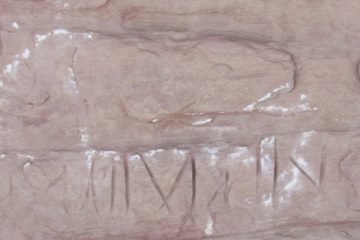
Researchers discovered Medieval-era Arabic graffiti in a cave in the Red Sea governorate of Egypt. Part of the description contains the Islamic confession of faith “there is no god except Allah“.
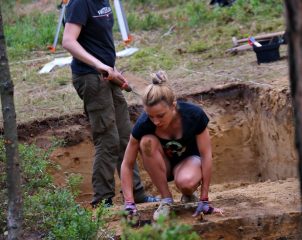
Archaeologists conducting excavation in Mojtyny and Wólka Prusinowa, North-East Poland, have uncovered archaeological artefacts identified as Prehistoric jewellery dating to the the Iron Age.
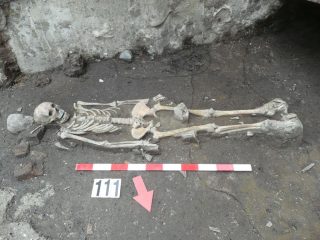
Archaeologists discovered remains of possible Plague victims from 18th century at a Medieval cemetery in the Śródka district of Poznań, Western Poland.
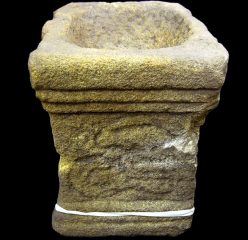
Archaeologists discovered an ancient Roman altar while monitoring a development of a retirement home within the area of the Medieval walls in central York, Northern England.

Rare Medieval stone, serving once as a burial marker, was discovered at The Howff cemetery, Dundee, Scotland. The stone possibly dates to 12th-13th century AD.
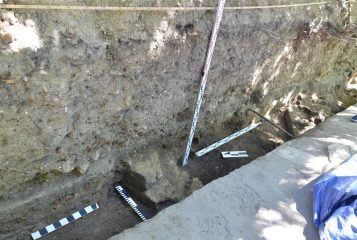
Archaeologists discovered remains of a castle, dating back to 16-18th centuries, while conducting drainage works at a World War 2 bunker in Wodzisław Śląski, South Poland.
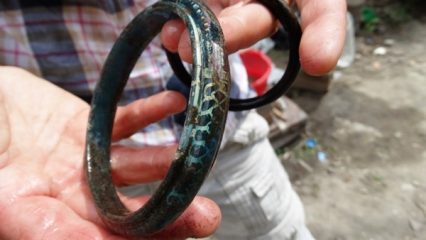
Archaeologists investigated the recently discovered necropolis by the Small Basilica in Plovdiv, Bulgaria, managed to find various artefacts in the graves dated to between 11th-14th centuries, including very well preserved bracelets.
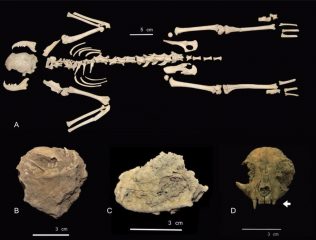
Archaeologists in East Spain discovered remains of cats at the site of El Bordellet, that were potentially skinned about 1000 years ago for the Medieval cat-fur industry or some sort of alleged ritual.
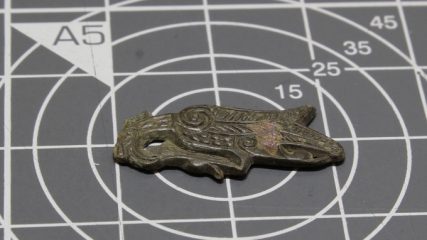
Archaeologists discovered an Early Medieval decorated copper bird during excavations of Bamburgh Castle, Northumberland, United Kingdom.
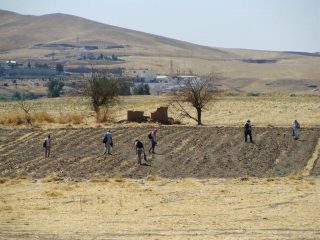
Polish archaeologists discovered remains of over 200 settlement sites, including villages and an ancient city, in the region of Northern Mesopotamia located in modern Iraqi Kurdistan.
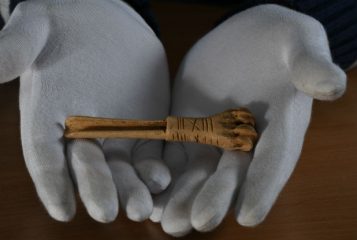
Archaeologists working prior to the construction of the Lincoln Eastern Bypass, Lincolnshire, United Kingdom, revealed an intriguing artefact from the site, which is a tool made from the leg bone of a sheep.
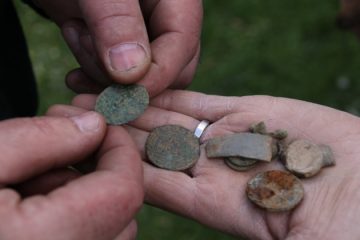
Community excavations at Old Hall in Erpingham, Norfolk, United Kingdom, the birthplace of Sir Thomas Erpingham, commander of King Henry V’s longbow archers at the Battle of Agincourt 1415, led to discovery of Medieval coins.
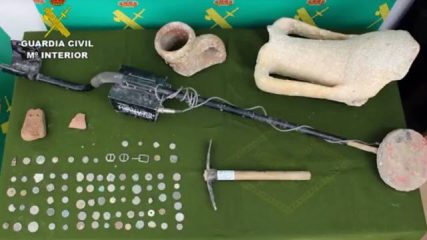
Officers of the Guardia Civil in Spain seized over 3000 ancient coins and 20000 artefacts in an operation aimed against illegal looting and trade of antiquities.

Archaeological investigation prior to S3 road construction linking Legnica and Bolków, south-western Poland, led to the discovery of numerous archaeological features, including a Prehistoric burial site, pottery and Bronze artefacts.